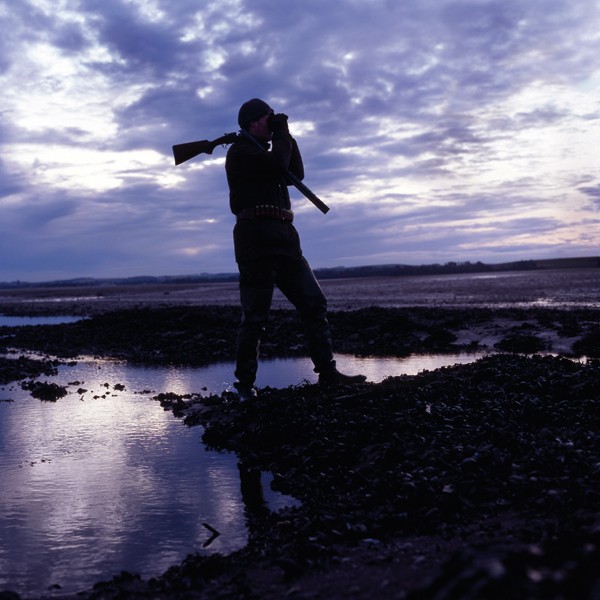Scottish Fowling under Threat

Ken Arkley recently highlighted the problems posed on the Humber by Natural Englands procedures for dealing with wildfowling consents (The battle for wildfowling, 16 September). However, it is not only in England that fowling is under threat. North of the Border, where Scottish fowlers have traditionally felt that their foreshore rights were reasonably secure, there have been a number of recent examples which suggest that their fowling smocks are hanging on a shaky peg.
Most of the problems arise from the fact that the main strategy for controlling wildfowling on key estuarine sites in Scotland has been the use of Local Nature Reserves (LNRs). This model has been used at Montrose Basin, the Eden Estuary, Wigtown Bay, Aberlady Bay and the John Muir Country Park (Tyninghame Bay). In each of these cases, the LNR by-laws ban fowling by prohibiting the carrying or discharging of guns and the killing or harming of any animal or bird. Having bannedwildfowling in this way, the by-laws then give the local authority a discretionary right to issue permits subject to whatever conditions and limitations the local authority politicians decide. Altering those conditions or deciding to issue no permits at all does not require a change to the by-laws or any level of consultation or external approval. It is a political decision by the local council.
Clubs in danger
In bygone days, when there was a high level of mutual respect between fowlers and other conservationists, some of those LNRs were promoted by fowling clubs. Those clubs are belatedly awakening to the dangers they now face. For example, daylight tide flighting has been banned at Tyninghame Bay. Tide flighting and moon flighting have been banned at Montrose Basin and recent attempts to have moon flighting restored have been thwarted. This has been on the advice of Scottish Natural Heritage (SNH), which, in its correspondence with Angus Council, cites totally unsubstantiated disturbance concerns. This is an example of the fact that once we lose an element of our sport it is difficult to get it back.
Perhaps the most dramatic threat is on the Tay Estuary. Currently, the Inner Tay Estuary LNR covers a small section at the eastern end of the area and there are no by-laws to enforce the voluntary no-shooting zone at Kingoodie Bay. However, the management plan for this nature reserve, recently published by Perth & Kinross Council and supported by SNH and the RSPB, contains a specific objective of enlarging the LNR to include virtually all the prime fowling foreshore between Perth and Dundee. If this were to proceed, there would be an immediate call by the protectionist bodies for draconian by-laws and extensive sanctuary zones, which could decimate the wildfowling opportunities on one of Scotlands most iconic estuaries.
Future in peril
Lest there be any doubt about the capacity of local authorities summarily to place additional restrictions upon fowling within those LNRs, the loss of a mile of prime wildfowling foreshore on the Eden Estuary this season establishes once and for all that fowling is in peril (News, 2 September). In this case, Fife Council altered the permit conditions on the advice of a countryside ranger, supported by SNH. In the rangers report, the main argument seemed to be that wildfowlers were incapable of identifying the high-water mark and might inadvertently shoot on adjacent private land. This, apart from being an insult to the intelligence and integrity of fowlers, has implications for the future of fowling around the Scottish coast.
Two years ago, BASCs Council adopted a policy statement averring that BASC will oppose at all levels any restriction being placed upon wildfowling that is not, in the opinion of both the council and its Wildfowling Liaison Committee, capable of being shown by clear evidence to be necessary for the future of wildfowling in the UK and the wildfowl and wildlife habitat on which wildfowling depends. Never has there been a greater need for those fine words to be translated into powerful and effective actions. There is an urgent requirement for research to support a challenge to the spurious claims of disturbance that are so often used to justify restrictions upon wildfowling. Throughout the UK, the rights of fowlers are being systematically eroded. The future of our sport depends upon a strenuous defence of what remains.
Eric Begbie is on BASCs wildfowling liaison committee and is the press officer for the East of Scotland Association for Wildfowling & Conservation.








